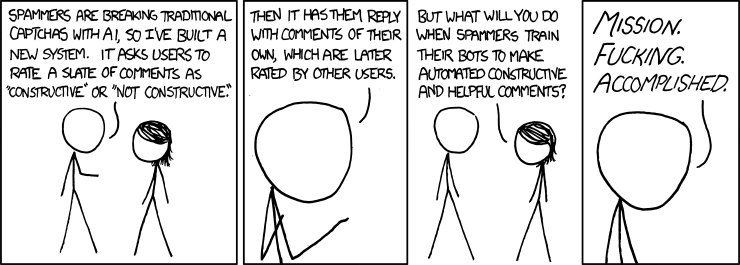![]() There's a common fantasy trope that, up until now, I've sort of taken for granted: the "true name."
This is the idea that all things have true names that are somehow more closely linked to what the thing is, and that knowing it grants some degree of power over the thing. This has many forms and ...
There's a common fantasy trope that, up until now, I've sort of taken for granted: the "true name."
This is the idea that all things have true names that are somehow more closely linked to what the thing is, and that knowing it grants some degree of power over the thing. This has many forms and ...
user61230
user61230
user61230


